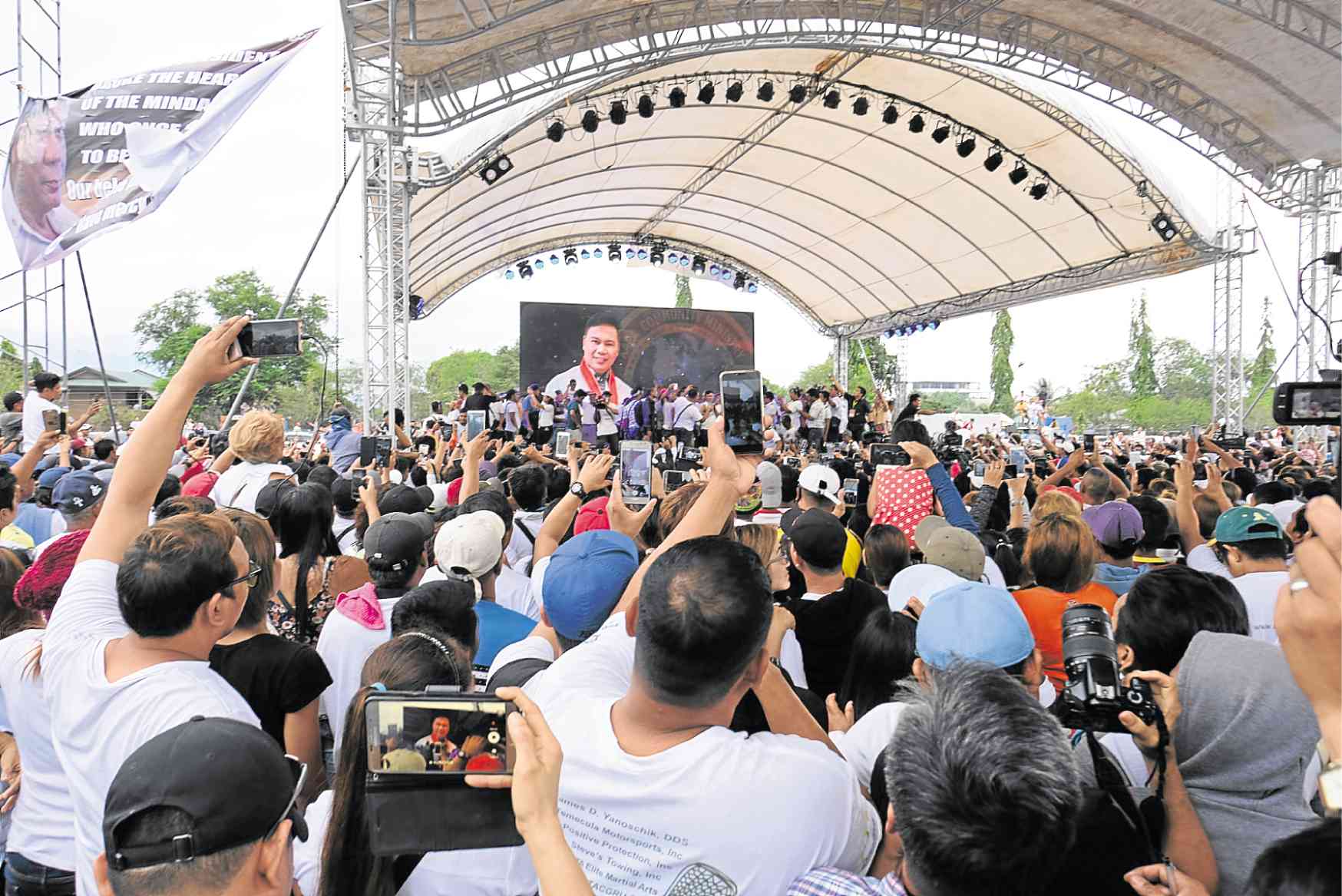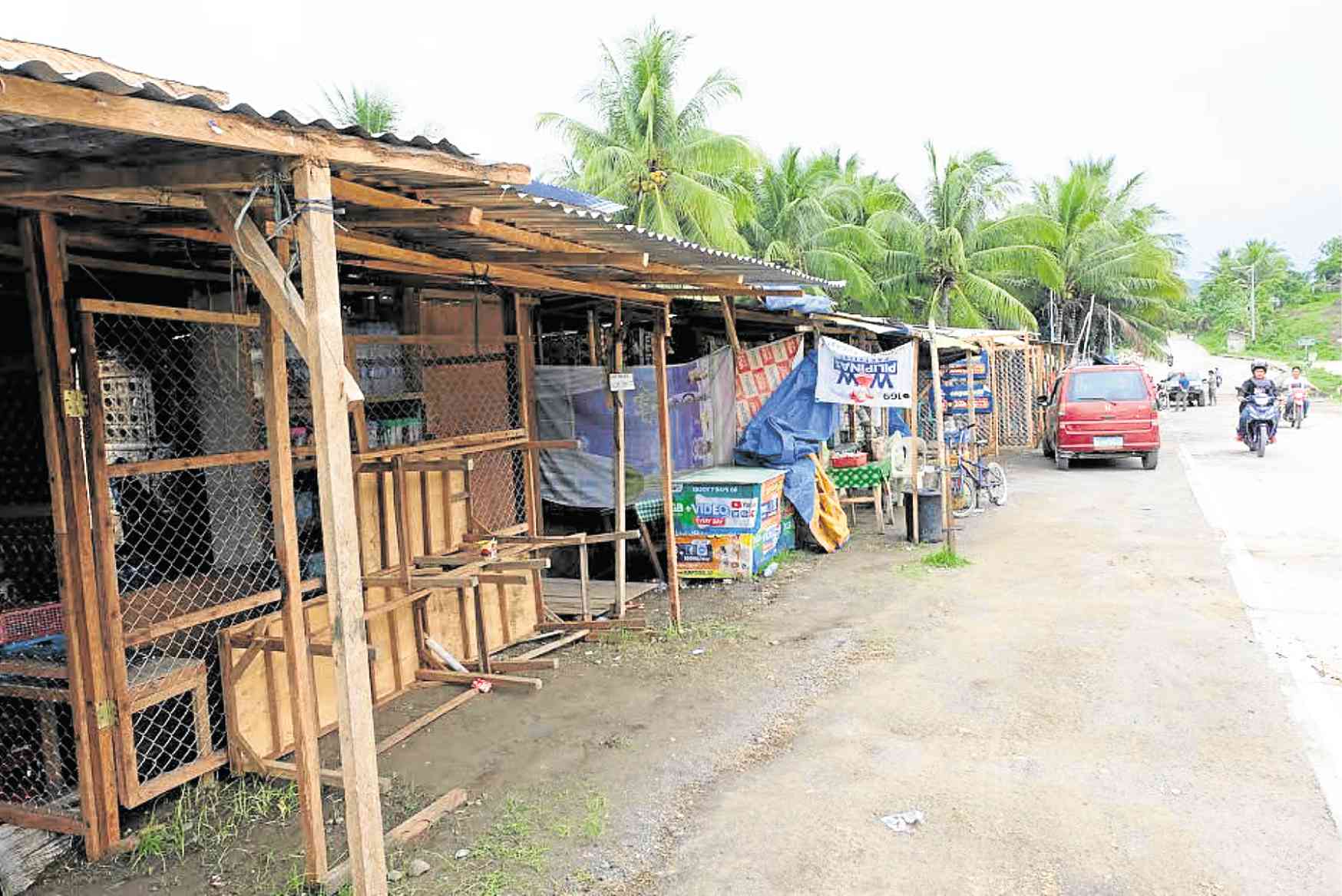Kapa members reluctant to sue founder, says NBI

SHOW OF SUPPORT Thousands of Kapa Community Ministry International members join a prayer rally in General Santos City on June 13 to show their support for their leader, Joel Apolinario. —BONG SARMIENTO
GENERAL SANTOS CITY, South Cotabato, Philippines — Members of Kapa Community Ministry International Inc. remained reluctant to file complaints against the group’s founder, hoping to find a way to keep their “religious ministry” in operation, a National Bureau of Investigation official said on Wednesday.
Lawyer Regner Peneza, NBI Sarangani district office chief, said Kapa members were weighing their options following the crackdown on their group, which claims to have five million members, including overseas Filipino workers.
“It had not sunk in or if it did, the members were still hoping against hope (for Kapa operations to return to normal),” he said.
“They don’t want to antagonize [Kapa officials and bite] the hands that feed them,” Peneza said, explaining the absence of a complaint filed by any member against founder Joel Apolinario or any of Kapa’s officers.
Recovering donations
Article continues after this advertisementThe Securities and Exchange Commission (SEC) on Tuesday filed a criminal complaint against Kapa and its officers for allegedly running an investment scam. It said Kapa had “amassed wealth through an investment scam in the guise of religion and at the expense of the investing public.” The complaint was filed in the Department of Justice.
Article continues after this advertisementPresident Rodrigo Duterte last week reiterated his order for authorities to go after Apolinario who, through his religious ministry, collected “love donations” from members.
Peneza confirmed that a Kapa member went to the NBI office here “not to file a formal complaint, [but to ask] how to recoup the donation.”
Kapa members have been promised a 30-percent monthly interest, or “love gift,” for their “donations.” Until the Kapa operations were ordered closed by the President last week, members have been regularly receiving their “love gifts” in various offices, mostly in Mindanao and the Visayas and parts of Luzon.
The SEC earlier estimated that Kapa had received about P50 billion in “donations” from its members over the last three years.
Peneza said NBI lawyers were willing to help the complainants execute judicial affidavits against Kapa but no one had approached the agency.

DESERTED Most of the stores built outside the headquarters of Kapa in Alabel, Sarangani, have been closed following the crackdown on the group’s operation. —BONG SARMIENTO
Starting in Bislig
Apolinario transferred Kapa’s headquarters to Alabel, Sarangani, in Soccsksargen region (Region 12), in 2017. Its operation started in Bislig, Surigao del Sur province, where Apolinario was hounded by members who accused him of estafa.
Apolinario settled the complaints by either returning their money or after members had issued affidavits of desistance, Peneza said.
Kapa branches and similar groups offering get-rich-quick schemes have mushroomed in parts of Soccsksargen, before these spread to Davao Region and reached other parts of Mindanao, the Visayas and Luzon.
Peneza said the manhunt for Apolinario was ongoing. NBI agents were also looking for the helicopter that Apolinario and his wife Reyna used when they attended a rally of Kapa members in this city on June 13.
Apolinario, during the rally, told his members that “Kapa’s operations were already OK with the President.”
But President Duterte, who was also in the city on the same day to distribute land titles, lashed out at Apolinario, calling him a “con artist.”
The President reiterated his order for concerned government agencies to go after Apolinario.
Crowd gone
At the Kapa headquarters in Alabel town, the property once teeming with people, motorcycles and latest car models had become almost deserted.
Emily Recopelacion, who operates a sari-sari (variety) store and an eatery outside the Kapa headquarters, said she lost P15,000 in daily income after the office was closed following an NBI raid on June 10.
“Prior to the closure of the Kapa office, our store had plenty of customers. Even at night, there were many people waiting for their turn the next day for the payout,” she told the Inquirer.
She said she could barely earn P100 a day from the store after the Kapa office’s closure.
Recopelacion, a Kapa member, urged the President to allow Kapa to operate, saying it was their way out of poverty.